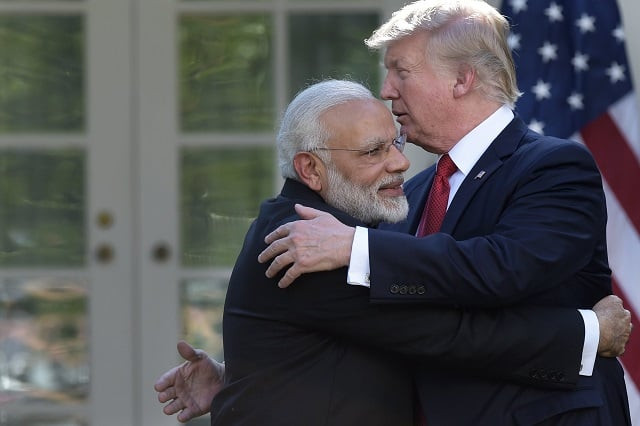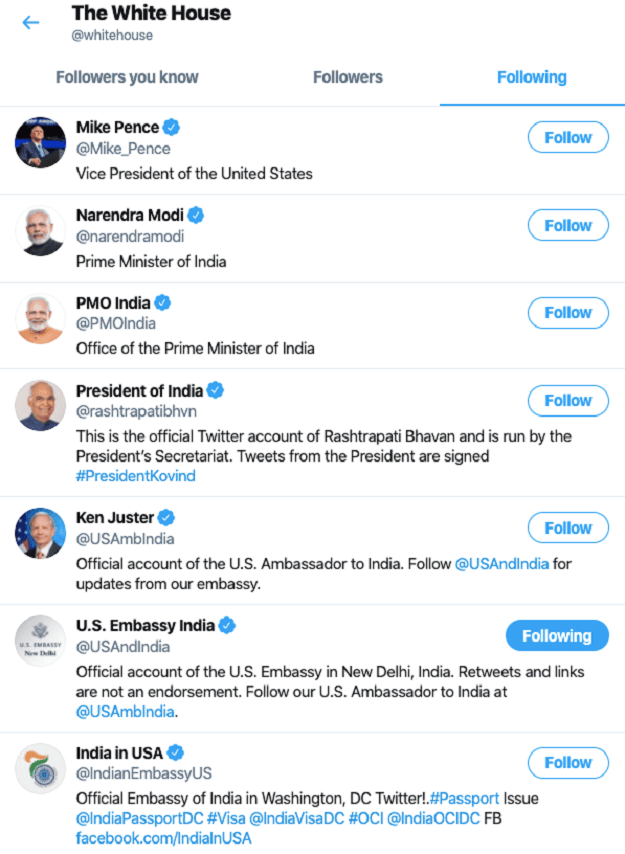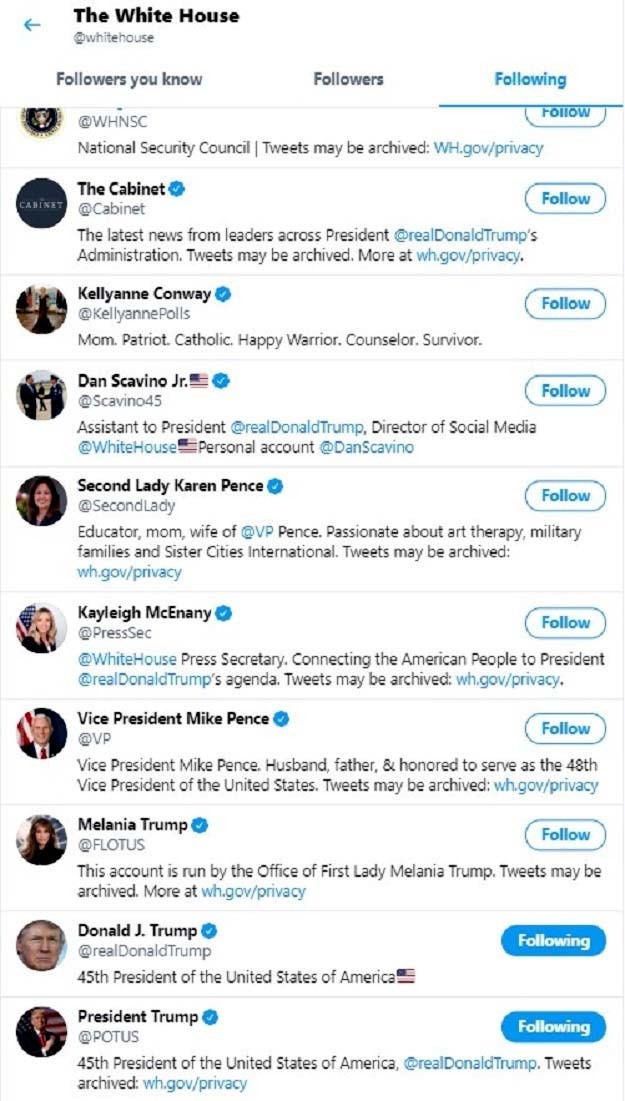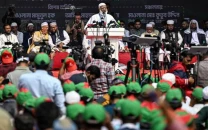Trump hits unfollow on India's Modi
Indian prime minister was the only world leader followed by Washington's official Twitter handle

It has also unfollowed the Twitter handle of Indian President Ram Nath Kovind, the Prime Minister's office, as well as, the Indian embassy in the US.
The Twitter account of the White House -- the residence and workplace of the US president -- has over 21 million followers.
Three weeks ago, Modi had the 'honour' of being the only world leader followed by Washington's official handle.
Religious freedom watchdog wants India on US blacklist
The move to follow the Indian premier's account on April 10 was seen as a reflection of the good rapport shared by Modi and President Trump.

Their last interaction was over the export of hydroxychloroquine, which the US wanted for its fight against coronavirus.
After India allowed the export of the drug, President Trump called Modi "great" and "really good".

"Extraordinary times require even closer cooperation between friends. Thank you India and the Indian people for the decision on HCQ. Will not be forgotten! Thank you Prime Minister @NarendraModi for your strong leadership in helping not just India, but humanity, in this fight!", the US President had tweeted.
Extraordinary times require even closer cooperation between friends. Thank you India and the Indian people for the decision on HCQ. Will not be forgotten! Thank you Prime Minister @NarendraModi for your strong leadership in helping not just India, but humanity, in this fight!
— Donald J. Trump (@realDonaldTrump) April 8, 2020
The White House handle followed PM Modi and other Indian accounts only two days later.
Congress's Gaurav Pandhi, a member of the party's social media cell said that: "Why has the White House unfollowed Prime Minister and President of India on Twitter".
Turns out, after White House, Donald Trump too has blocked/unfollowed PM Modi. What's happening here?
— Gaurav Pandhi (@GauravPandhi) April 29, 2020
Govt owes an explanation to people!
It also "dismayed" fellow party leader Rahul Gandhi, who urged India's External Affairs Ministry to take note of the incident.
"I'm dismayed by the 'unfollowing' of our President & PM by the White House. I urge the Ministry of External Affairs to take note," tweeted Gandhi
I'm dismayed by the "unfollowing" of our President & PM by the White House. I urge the Ministry of External Affairs to take note.
— Rahul Gandhi (@RahulGandhi) April 29, 2020
Princess Hend Al Qassimi, a member of the royal family of the United Arab Emirates, also shared the development, calling for an end to the hatred against Muslims in India.
She has repeatedly raised her voice against New Delhi's atrocities against the Muslim minority in the country.
https://twitter.com/LadyVelvet_HFQ/status/1255566574884356098
While Indian professor Ashok Swain questioned the Indian media's deafening silence now, in contrast to the resounding clatter upon the White House following Modi.
https://twitter.com/ashoswai/status/1255388962488713216
From bad to worse
Washington's 'snub' comes a day after the United States Commission on International Religious Freedom in its annual report called for the State Department to designate India as a “country of particular concern” or CPC, for “engaging in and tolerating systematic, ongoing, and egregious religious freedom violations, as defined by the International Religious Freedom Act”.
Read the full #USCIRFAnnualReport2020 here: https://t.co/2StRIpQk2i pic.twitter.com/vbSAqiDdov
— USCIRF (@USCIRF) April 28, 2020
Giving India its harshest rating since 2004, the independent and bipartisan US federal government commission also pushed for imposing targeted sanctions on Indian government agencies and officials responsible for severe violations of religious freedom by freezing those individuals’ assets and/ or barring their entry into the US under human rights-related financial and visa authorities, citing specific religious freedom violations.
USCIRF Chair @tperkins describes the overall changes to the 2020 Annual Report. #USCIRFAnnualReport2020
— USCIRF (@USCIRF) April 29, 2020
Read the full Annual Report: https://t.co/nixMdaosCO pic.twitter.com/mY4D5yKU46
It also suggested strengthening the US Embassy and consulates’ engagement with religious communities, local officials, and police in India, especially in regions impacted by religiously motivated violence.
The Citizenship (Amendment) Act in #India “potentially exposes millions of Muslims to detention, deportation, and statelessness when the government completes its planned nationwide National Register of Citizens” USCIRF Vice Chair @nadinemaenza #USCIRFAnnualReport2020
— USCIRF (@USCIRF) April 28, 2020



















COMMENTS
Comments are moderated and generally will be posted if they are on-topic and not abusive.
For more information, please see our Comments FAQ